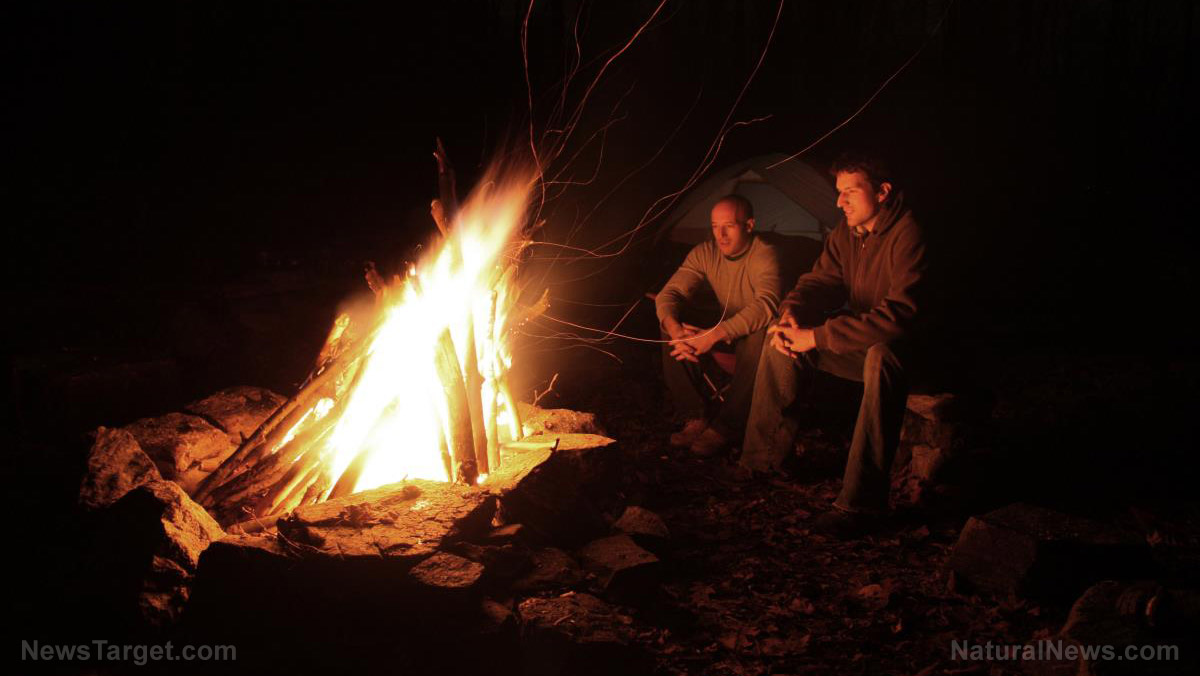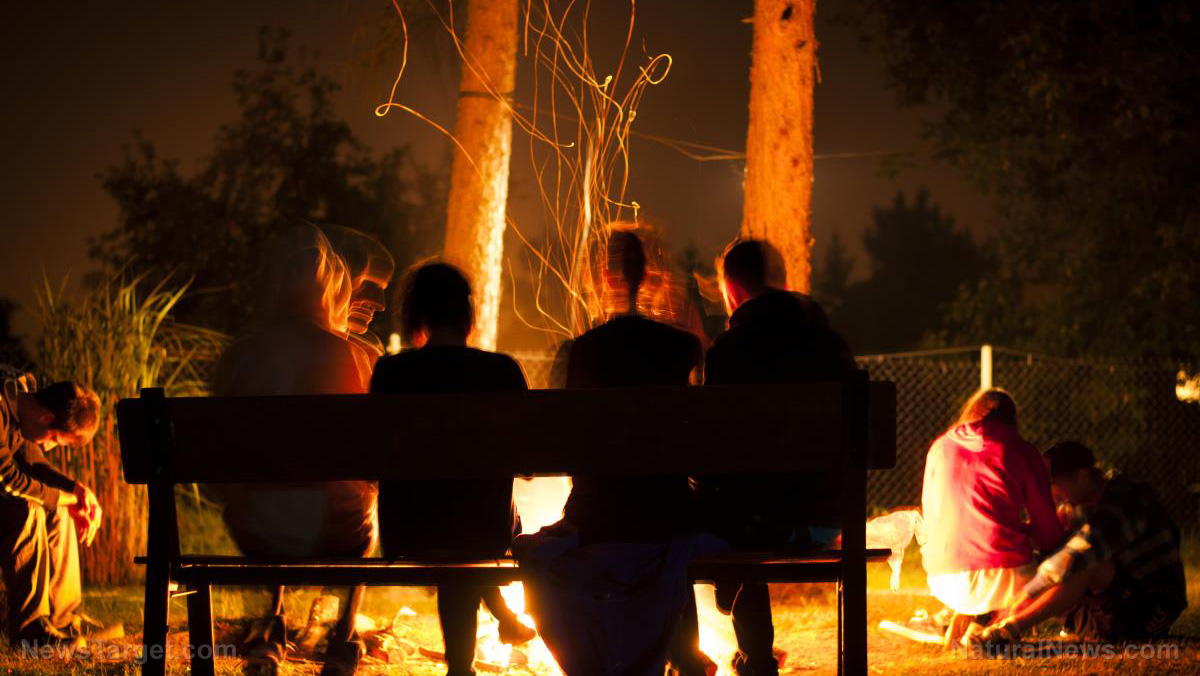Light the path through any survival situation with a DIY torch
03/07/2020 / By Darnel Fernandez

When caught in a survival situation, one of the best tools you need to keep yourself alive is a light source. If you’re sufficiently prepared for any danger, it’s highly likely that you would have a flashlight or lamp with you, making it much easier to traverse dangerous terrain even in the dark. However, you might find yourself caught unawares without a modern light source. In this case, knowing how to create your own DIY torch can significantly help you survive in unfamiliar territory. (h/t to PreppersWill.com)
An improvised light source
Torches have been used by humans for thousands of years to provide light in the darkness, way before the dawn of kerosene lanterns or electricity. While some prefer DIY oil lamps and candles for lighting up their houses or bug-out locations when SHTF, making your own torch is one of the best ways to get a light source in a wilderness survival scenario. This is especially true if you know how to gather materials to create the torch from the surrounding area, making it an important skill to learn. (Related: 8 Pillars of the survival protocol that every prepper needs to master.)
Torches can be used in more than just lighting up your general vicinity. They can also be used for both hunting and fishing. Some animals are easily attracted to sources of light, making them quick catches. You can also blind more difficult prey with a torchlight to give a similar effect. Further, torches can also be used to defend yourself against predators — most of which would rather avoid fire.
The task of making an improvised torch might prove difficult for first-timers or those unfamiliar with the process. In a survival situation, you’re most likely going to try to create a traditional tree resin torch only using materials found in the wilderness. But before you set off to find materials, you need to locate a place with good ventilation and free from combustible materials to prevent any unwanted accidents.
If you happen to be in an area full of pine trees, you can start the torch-making process by scraping off any pine gum you can find with a knife or an ice pick. Pine pitch is often found where branches have been cut off or where part of the bark has been removed. This material can also be found in a variety of textures and appearances, ranging from a clear sticky sap to hard, white lard.
Once you’ve gathered enough pitch, you can place them inside a tin can, then slowly heat up the pile over a small fire. However, take caution to heat it slowly as pitch boils at low temperatures. Melting the pitch too quickly will cause it to burst into flames. Afterward, you can choose a wicking material like rope, palm leaves, cattails and cotton for your torch.
Wrap your wicking material around a wooden stick before dipping it into the melted pine pitch. Once the pitch cools down, you’ve successfully created your own torch ready for any situation. However, pine resin torches emit a lot of smoke and the burning pitch will drip, so it is important to handle the torch with care.
Instead of tree resin, you can opt to use other types of fuel to make your torch flammable. Kerosene, vegetable oil and other types of fuel are all viable options for torch making, with vegetable oil edging out as the cheaper and safer alternative. Alternatively, you can preemptively prepare for situations that require a torch by training your eyes to see better in the dark. This unique skill allows you to travel undetected through the night, giving you the element of surprise against both prey and predator.
Keep yourself prepared in any situation with more tips and tricks at Survival.news.
Sources include:
Tagged Under: DIY, emergencies, Gear, light source, lighting, preparedness, prepper, prepping, self-reliance, SHTF, survival, Survival Tips, survival tools, survivalist, torch
RECENT NEWS & ARTICLES
COPYRIGHT © 2017 GEAR.NEWS
All content posted on this site is protected under Free Speech. Gear.news is not responsible for content written by contributing authors. The information on this site is provided for educational and entertainment purposes only. It is not intended as a substitute for professional advice of any kind. Gear.news assumes no responsibility for the use or misuse of this material. All trademarks, registered trademarks and service marks mentioned on this site are the property of their respective owners.



















